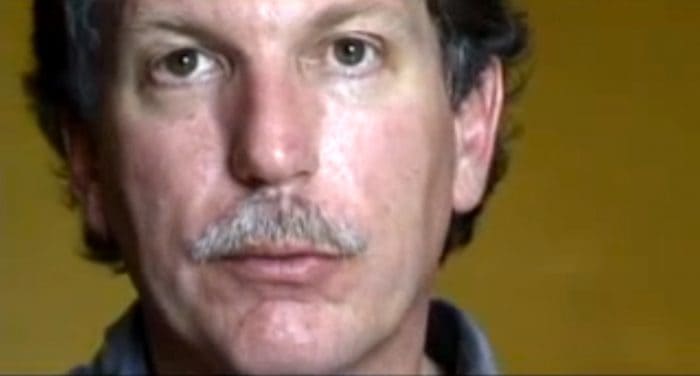
See also: Reviving the messenger: Gary Webb’s tale on film
I haven’t seen “Kill the Messenger,” the movie about the rise and fall of the crusading San José Mercury News reporter Gary Webb, but I did know Gary Webb.
Webb, who tried to link the CIA-backed Nicaraguan Contra rebels to the crack cocaine epidemic that swept the United States, contacted me when I was working at The Tico Times in the mid-1990s to help him with some legwork in Costa Rica ahead of his visit to further investigate the series that had made him famous overnight. The follow-up on which he was working was never published in the Mercury News after his editors withdrew their support for his story, under the weight of criticism by The New York Times, The Washington Post and The Los Angeles Times.
After he was demoted, Webb quit the Mercury News, and, unable to find work at another major newspaper, killed himself.
When Gary Webb came to Costa Rica to follow up on his Dark Alliance series – this was before his work was “discredited” by the big three newspapers – I met with him to tell him about Contra drug stories that I had reported for The Tico Times.
My impression of Webb was that, in addition to being a novice to tumultuous Central American politics, he was dead set on his thesis that the Contras originated the crack cocaine epidemic in the United States. He was absolutely certain that the Contras were the source of the cocaine for Freeway Ricky Ross who, Webb was equally as certain, originated the crack epidemic.
“It had to start somewhere,” Webb insisted adamantly.
Reading the series, the evidence for this is thin, which is what opened Gary to the withering attacks he endured by The New York Times, The Los Angeles Times and The Washington Post.
But recent revelations by former DEA agents might paint a different picture. Last year, former DEA agents Héctor Berrellez and Phil Jordan said that people tied to the Contras imported tons of cocaine into U.S. military bases in the 1980s, among them El Toro Marine Airbase in southern California and Homestead Airbase in Florida. Berrellez said he’s convinced the drugs coming into El Toro found their way to the streets of Los Angeles through the Contra pipeline.
“Gary Webb was right,” said Berrellez.
The former DEA officials have come forward now because they are convinced that the CIA was complicit in the 1985 murder in Mexico of DEA agent Enrique “Kiki” Camarena, based on the testimony of three witnesses currently in the federal witness protection program who place a Cuban-American CIA operative at the interrogation and torture of Camarena.
The CIA “sacrificed” Camarena because he had come across the Contra/drug connection, according to the former agents. The CIA has called the charges “ridiculous” and the Cuban-American operative has threatened Berrellez with a libel suit. A DEA spokeswoman would only say that the agency is satisfied that all the authors of Camarena’s murder have been indicted.
The charges were aired last year by the Mexican weekly magazine Proceso, the El Paso Times, the Huffington Post and Fox News after the man convicted in Mexico of Camarena’s murder, drug lord Rafael Caro Quintero, was released from a Mexican prison.
The drug flights to military bases were something that was the subject of gossip and speculation during the 1980s. But now Robert “Tosh” Plumlee, a pilot who says he worked for the company SETCO – identified in a 1998 CIA Inspector General’s report prompted by Webb’s reporting as a drug trafficking company and the principle company that transported arms and supplies to the Contras – has come forward to confirm that he and other SETCO pilots flew about 40 tons of cocaine into both El Toro and Homestead, among other U.S. military air bases.
In addition, former DEA agent Celestino Castillo confirmed that Contra drug flights left El Salvador’s Ilopango Airbase and were flown to Homestead Airbase in Florida, information he got from a source in the Ilopango control tower.
Plumlee said he was able to fly into U.S. military airbases because he had codes to transponders that enabled him to land without interference from the military, which were given to him by SETCO along with his flight plans.
But Plumlee has made other claims in the past about being privy to famous events that, to some, question his reliability as a source.
The colorful pilot claims to have transported a CIA team from Tampa, Florida, to Dallas, Texas, on Nov. 22, 1963 to thwart the assassination of U.S. President John F. Kennedy. He also claims inside information about the delivery of U.S. arms to terrorists who carried out the 2012 attack on the U.S. Consulate in Benghazi, Libya.
But both Berrellez and Jordan said that Plumlee’s version checks out with what they know and vouch for his credibility. Also, Bill Holden, a one-time legislative aide on national security for former U.S. Senator Gary Hart, who met with Plumlee in 1986, said he has no reason to question the pilot’s veracity. Plumlee has testified before various U.S. Senate committees.
But even if Plumlee is the conspiracy theorists’ dream-come-true as some believe, his claims involving the trafficking of drugs for the Contras to U.S. military installations could easily be corroborated by other Contra pilots, former Panamanian dictator Manuel Noriega’s pilot Floyd Carlton Casares and the Costa Rican pilot Warner Lotz, to name two.
Both pilots served time in prison. I don’t know of Carlton Casares’ whereabouts. I recently asked a source in Costa Rica about Lotz and was told he was “keeping a low profile.”
The problem is that very little interest exists on the part of news organizations now to follow up the military base angle or anything else that involves Contra/drugs, for that matter. The undoing of Gary Webb saw to that.
This story was edited after its original posting to add the 18th paragraph referring to Robert “Tosh” Plumlee’s credibility.






